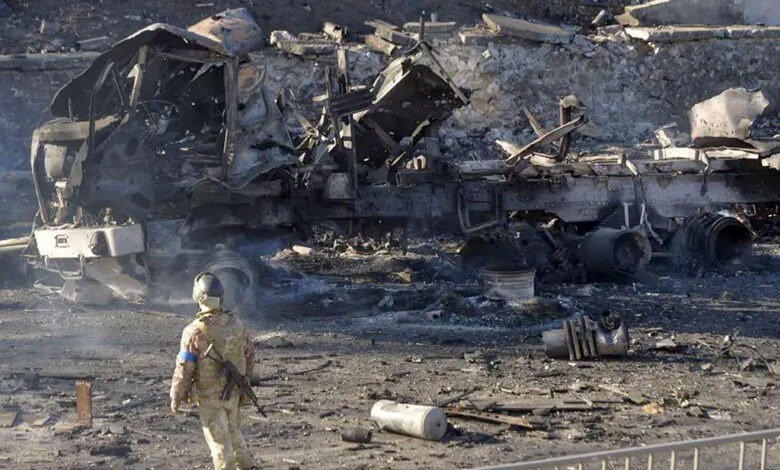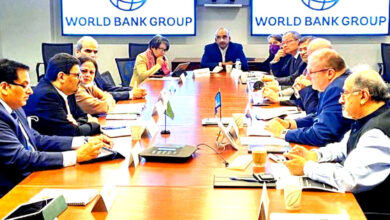Analysis: Loans to Russian soldiers are one reason why people want European banks to stop.

A Russian plan to stop loan payments for troops fighting in Ukraine and have banks forgive the whole debt if they die or are hurt has made it harder for the few foreign lenders who are still in Russia to stay.
A few European banks, like Austria’s Raiffeisen Bank International and Italy’s UniCredit, are still making money in Russia almost a year after Moscow started what it calls a “special military operation” in Ukraine.
The loan relief plan has been criticised by Ukraine’s central bank, which said it had asked Raiffeisen and other banks to stop doing business in Russia, as well as by investors who are worried about how it might affect their reputations.
Raiffeisen and UniCredit are both deeply rooted in the Russian financial system. They are also the only foreign banks on the central bank’s list of 13 “systemically important credit institutions,” which shows how important they are to Russia’s economy, which is struggling with wide-ranging Western sanctions.
Some investors have gone public with their doubts because of how they helped the Russian economy at a crucial time for President Vladimir Putin.
Kiran Aziz, who works for the Norwegian pension fund KLP, said that companies should be very careful because there is a big chance that the banks could be used to “finance the war in other ways.” Both Raiffeisen and UniCredit are owned by KLP funds.
In September, when the payment holiday law was going through parliament, the powerful speaker of the lower house, Vyacheslav Volodin, made it clear how important it was to Russia.
“Soldiers and police officers keep our country safe, and we need to make sure they are taken care of,” he said.
Eric Christian Pederson, who works for Nordea Asset Management, which is in charge of more than 320 billion euros, said he was also worried about Raiffeisen and UniCredit’s presence in Russia and had told them so.
He also said that the requirement that banks give payment breaks to soldiers shows “the dangers of doing business in places where companies can be forced to do things that go against their corporate values.”
“We think it’s right for companies to leave Russia because it attacked Ukraine without any reason,” Pederson said. Data from Refinitiv shows that Nordea has stock in UniCredit.
Between September 21 and the end of last year, banks restructured 167,600 loans for military members or their families worth more than 800 million euros, according to data from the Russian central bank.
Raiffeisen said that the “government-imposed loan moratorium” only affects 0.2% of its Russian loans, which it called “negligible.” The bank has been in Russia for more than 25 years and has lent almost 9 billion euros to people and businesses there.
It made a net profit of about 3.8 billion euros last year. This was mostly because its business in Russia made more than 2 billion euros.
UniCredit got into the Russian market almost 20 years ago when it bought an Austrian bank. It said that the rule was “mandatory under federal law… for all banks,” but it wouldn’t say how many of its loans had been forgiven.
The Italian bank also said that it did more business with companies than with people in Russia. Last year, Russia brought in more than 1 billion euros of the more than 20 billion euros that UniCredit made in total.
But despite a sharp drop at first, UniCredit’s shares are now much higher than they were before Russia sent troops into Ukraine on February 24 of last year, while Raiffeisen’s have not recovered because they have a smaller amount of free float.
A spokesman for Swedbank Robur, one of Scandinavia’s biggest investors, said, “Making money off of a war that is still going on is not acceptable or in line with our view of responsible investments.” He also said that reputational risk was a worry.
Swedbank Robur said that it has shares in both banks, but it didn’t say how many it has in each.
When asked for their thoughts, larger institutional investors like France’s Amundi and Norway’s sovereign wealth fund, both of which support responsible investing, declined to say anything.
WINDOW CLOSING?
Some foreign banks have left the country pretty quickly.
Societe Generale (OTC:SCGLY), a French bank, cut ties with Russia in May when it sold Rosbank to Vladimir Potanin’s Interros Group.
One person with knowledge of the situation said that the European Central Bank (ECB) is paying attention to the fact that two of Europe’s biggest banks are still there.
Andrea Enria, who is in charge of overseeing the ECB, said that the window to leave was “closing a bit” because the Russian government was becoming more “hostile.” But he also said that any bank that wants to do less business there or leave is welcome to do so.
Raiffeisen and UniCredit both said they were in talks with the ECB about Russia.
UniCredit said that it kept the ECB “fully and regularly up to date on our strategy for reducing the risks associated with our exposure to Russia in an orderly way.”
But because there was still money to be made, Raiffeisen’s business in Russia made more than three times as much money last year.
While that was going on, Russian savers put more than 20 billion euros in the bank, which is a safer place to put money because of sanctions.
This means that banks don’t have a big reason to leave Russia, even though regulators are pushing them to do so.
And in Austria, which has close historical and economic ties to eastern Europe and Russia, politicians don’t say much about Raiffeisen’s continued presence in Russia, which has led to protests outside its headquarters in recent months.
Johann Strobl, the CEO of Raiffeisen, has said that he is looking into different options for the Russian business. He points out, however, that any move would be complicated since the bank is not “a sausage stand” that could be closed overnight.
Some people think that the question is more about morals than about money.
Heinrich Schaller, who is in charge of RBI’s third-largest shareholder, Raiffeisenlandesbank Oberoesterreich, and is also the vice chairman of Raiffeisen, has said that he isn’t sure he wants to stay.
He recently said, “Of course it comes down to morals.” “Without a doubt.”
No matter what the shareholders say, a decree from Putin is likely to make it hard to leave Russia. It stopped people from so-called “hostile” countries from selling shares in banks unless the Russian President gave them special permission.
($1 = 0.9376 euros)





